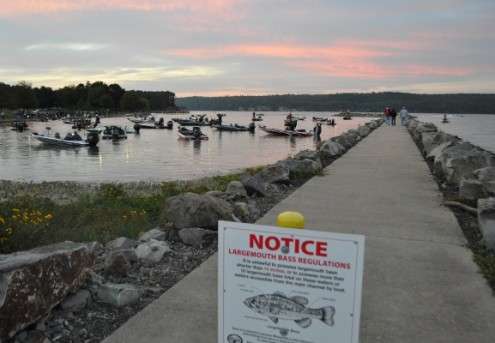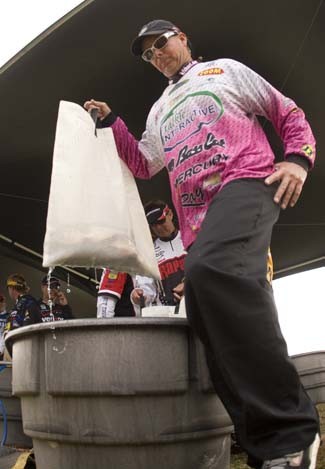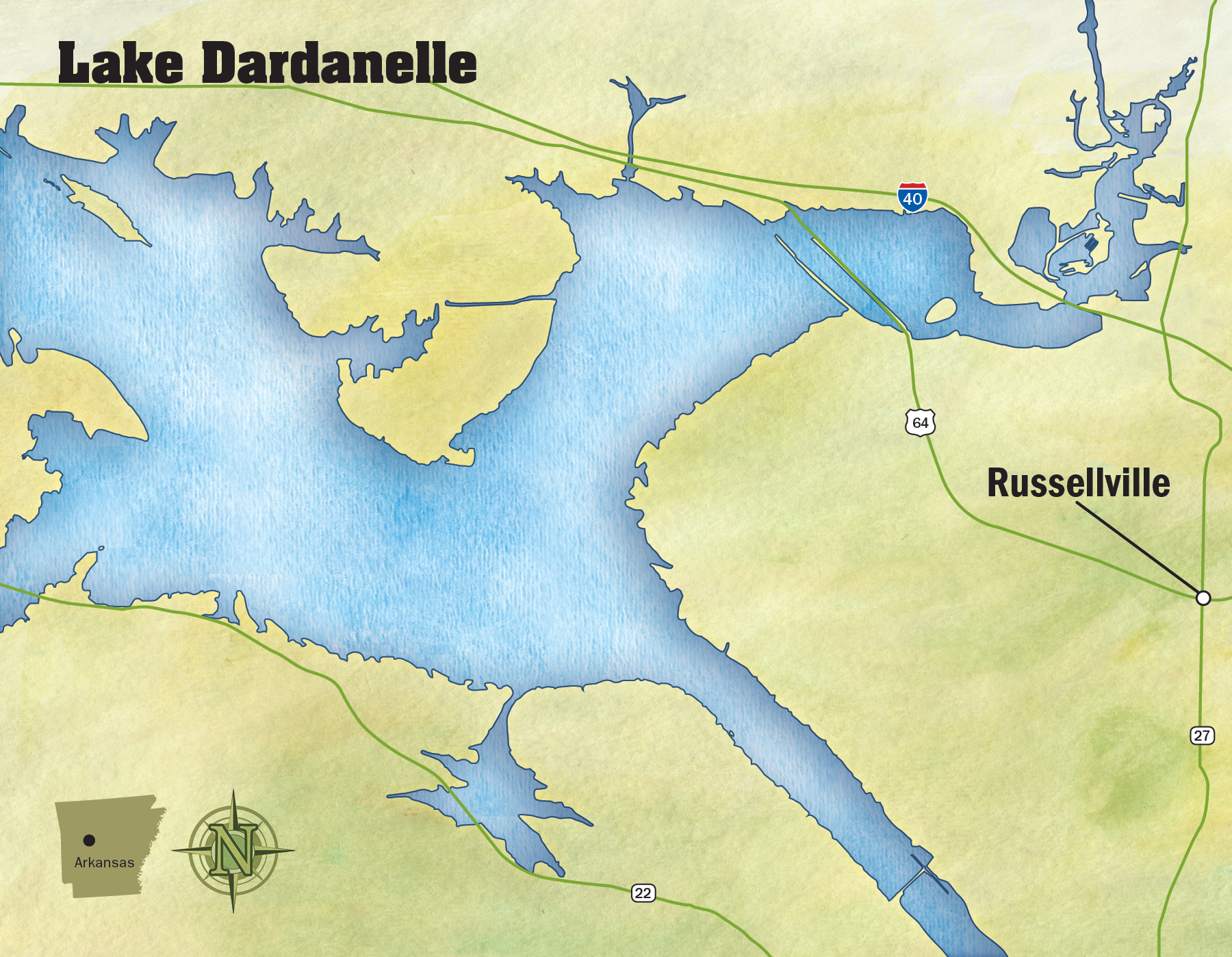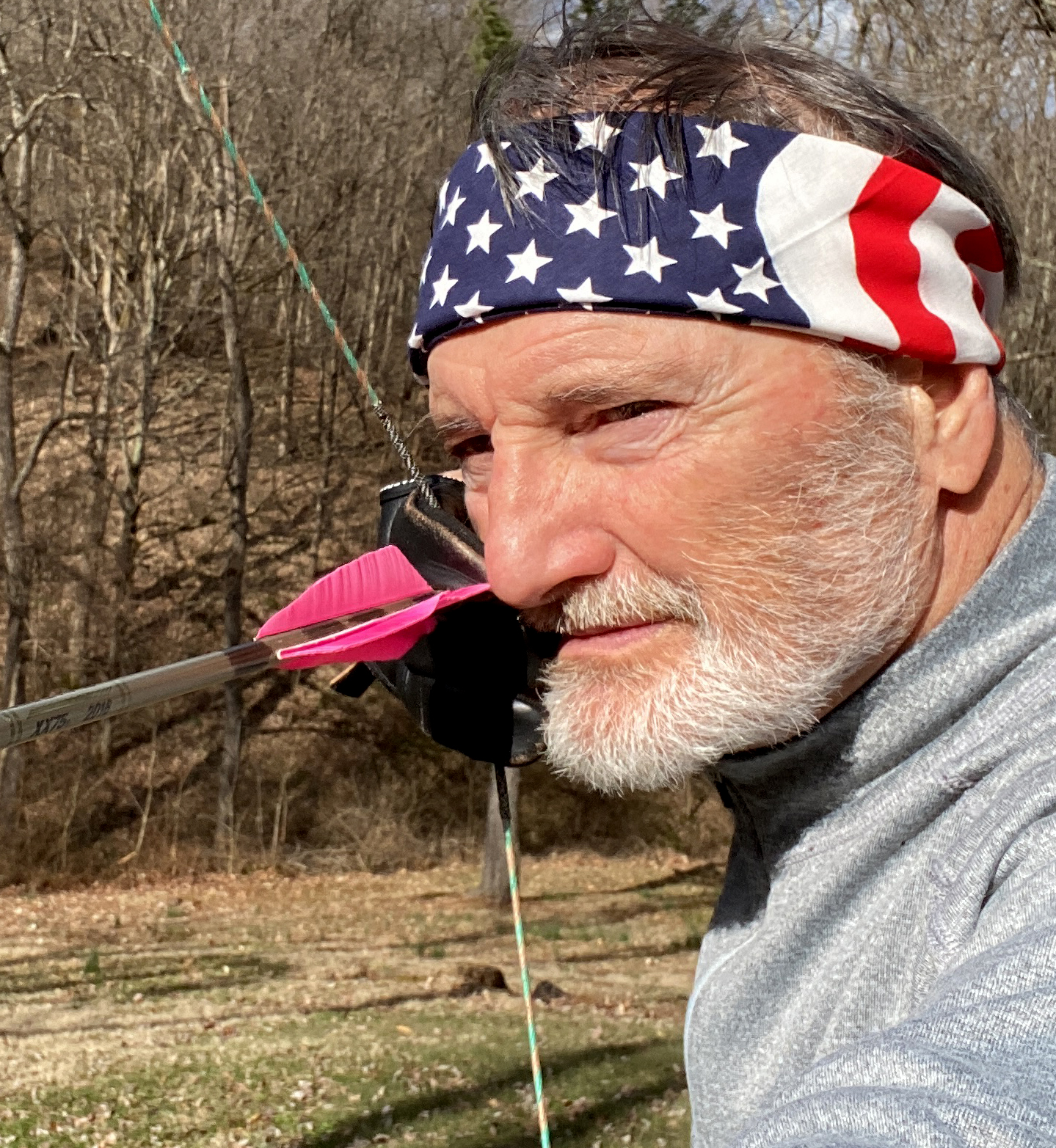
Editor’s Note: This is the fifth in a series profiling 2014 Elite Series locations.
Limit catches should be the norm when the Bassmaster Elite Series pros venture to Lake Dardanelle, Ark., in mid May. Frank Leone, a fisheries management biologist for Arkansas Game and Fish, claims that 2013 was the best year for bass fishing here since 2007.
“It will be good in 2014, too,” Leone says.
The bass in Lake Dardanelle, a 34,300-acre run-of-river reservoir, were negatively impacted by three consecutive high water years from 2007 through 2009.
“We finally had some average to low water in 2011 and 2012 and the bass population bounced right back,” Leone says.
Another plus for the Elite pros is that the minimum length limit for bass at Dardanelle was lowered from 15 to 14 inches in January 2013. The change was prompted by the results of an eight-year study of the Arkansas River fishery by the University of Arkansas at Pine Bluff.
If the winter and spring are cool, the bass during the Elite tournament will be mainly in a postspawn phase, Leone asserts. With warmer weather, the bass will be well into their summer feeding patterns.
Heavy rainfall could be a fly in the soup. It would muddy the water and create a swift current that would hamper fishing on the main river portions of the lake.
Elite Series pro Kevin “Pink” Short of nearby Mayflower, Ark., has seen Lake Dardanelle’s good, bad and ugly. He has fished the lake since boyhood and has pocketed a boatload of cash competing in tournaments here.
 “Dardanelle is like Dr. Jekyll and Mr. Hyde,” Short says. “It all depends on how much rain we get upstream in Oklahoma.”
“Dardanelle is like Dr. Jekyll and Mr. Hyde,” Short says. “It all depends on how much rain we get upstream in Oklahoma.”
High, muddy water would bunch the pros up into the clearest backwaters. The crowded water and heavy fishing pressure would drastically reduce the overall catch. Stable conditions will allow the pros to spread out and sample the best of what Dardanelle has to offer.
“If conditions are right, you’ll be able to catch bass on the main lake and in the backwaters,” Short says.
About 35 percent of Lake Dardanelle consists of backwaters that are likely to be tapped by a majority of the Elite pros. Large bays, including the Illinois Bayou, Piney Bay and Shoal Bay, are prime areas, as is Spadra Creek.
Wherever a given pro chooses to ply his trade, the bass will be found shallow due to the lake’s stained, fertile water.
“At that time of year, you can catch bass shallow on about anything you like to throw,” Short says.
That includes topwater, spinnerbaits, chatterbaits, swimbaits, crankbaits, flippin’ and frogs. Which lures and tactics produce the highest finishes depends on how much current is flowing through the lake, Short believes.
“Anything less than 100,000 cubic feet per second is good,” he says.
The shad spawn also could be a major factor. Short points out that the shad scatter their eggs in water willow, milfoil and other aquatic grass in Dardanelle. Here the bass find cover and an ample food supply.
 Kentuckian Mark Menendez won the last Elite Series tournament at Dardanelle in 2009. He gained an advantage over the field by switching to an aluminum boat that floated shallow enough to pass through a small culvert. The other pros were fishing from larger fiberglass boats and could not get through the culvert.
Kentuckian Mark Menendez won the last Elite Series tournament at Dardanelle in 2009. He gained an advantage over the field by switching to an aluminum boat that floated shallow enough to pass through a small culvert. The other pros were fishing from larger fiberglass boats and could not get through the culvert.
That won’t happen this year because of a rule change in 2012 for Bassmaster Elite Series tournaments. Whatever boat an Elite Series pro begins the season with is the boat he must use for rest of the year.
Short had a rough outing the last time the Elite Series ventured to Lake Dardanelle because he was suffering from shingles. Every move he made hurt, and the boat rides were brutal on him.
Although Short finished a respectable 24th at that tournament, he believes he should always be the one to beat at Dardanelle. He’s feeling good and looking forward to redemption this time around.
Given good fishing conditions, Short predicts that it will take something in the neighborhood of 45 pounds to make the Top 12 cut. He wouldn’t be surprised to see the winner amass 75 pounds over the four-day event. And he expects that there will be some five-bass limits that exceed 20 pounds.
Of course, that prediction goes out the window should the river get high and muddy.
“I’m good if the lake is Dr. Jekyll or Mr. Hyde,” Short says. “I know how to catch them at Dardanelle under any conditions.”

